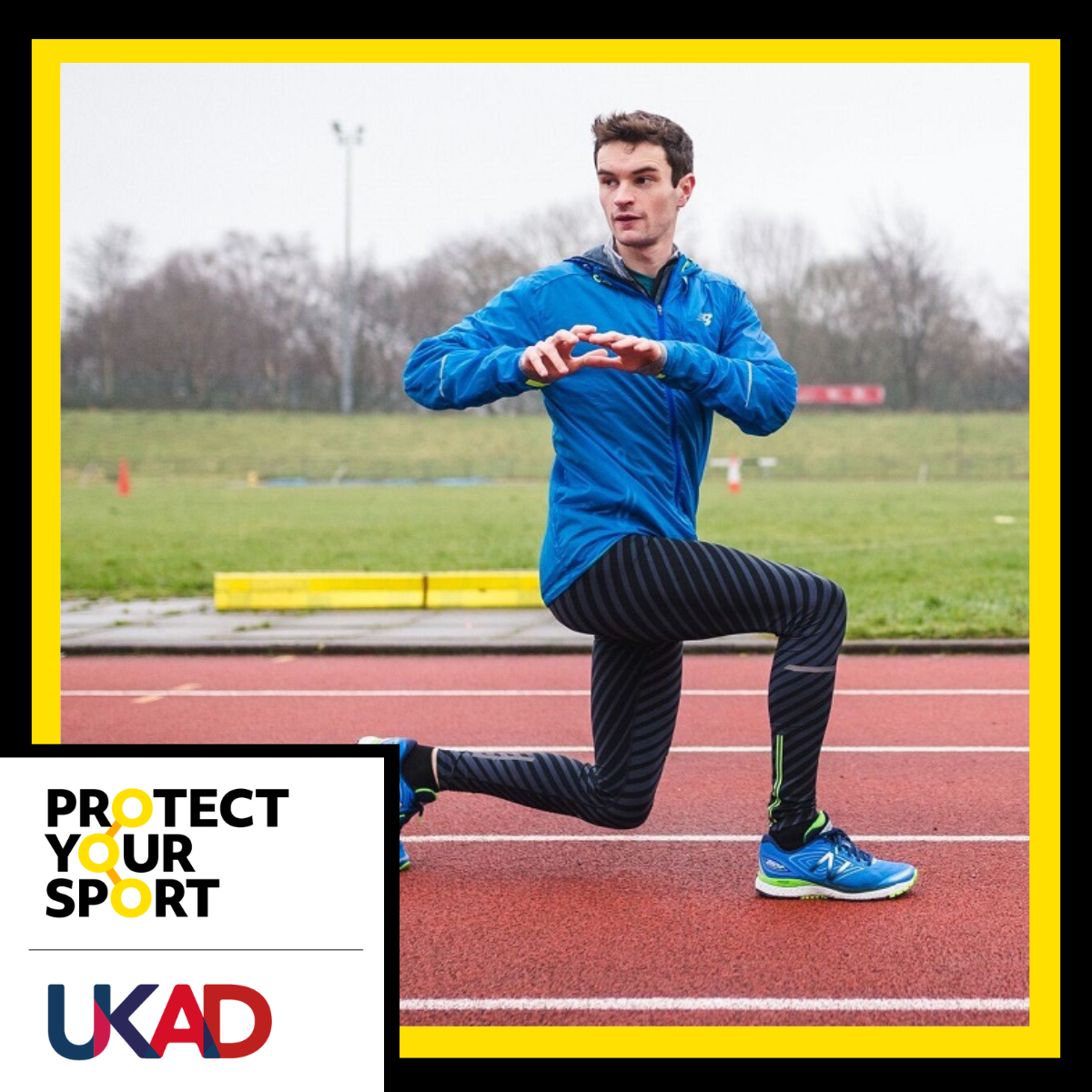Protect Your Sport: An interview with UKAD Athlete Commission Member Andrew Heyes
When it comes to understanding the scientific research around anti-doping and the real-time effects in top-level sport, there are few people in the world with greater pedigree than Andrew Heyes.

The former British indoor 3000m champion, who is working on a PhD thesis which looks at the psychosocial factors that facilitate doping in sport, is a passionate advocate for clean sport.
As part of UK Anti-Doping’s (UKAD’s) Athletes Commission, Heyes has been able to play a leading role in helping to effect change.
He explains: “From my perspective, I’m on the Athlete Commission at UKAD, my PhD is in this and I’m quite active in the Athlete Commission in my own sport. In athletics I’m the Chair of the Athlete Commission, although I wouldn’t say I’m particularly well-spoken or comfortable in a public environment, but I feel I have a responsibility to do what I can in the back channels and quieter aspects in making positive changes in the sport.
“I’m not someone who relishes the limelight and who would speak out aggressively about this but I’m doing what I can. There are numerous reasons I’ve been led down this path, in terms of my own experience and vicarious experience of good mates who have had to deal with this in their careers, of doping behaviours of other athletes.”
One athlete, in particular, had a major influence on Heyes’ own anti-doping journey.
Hatti Archer was a decade his senior but seeing her train up close he understood just how talented the steeplechase runner was.
At the 2010 European Championships, Archer – who was Hatti Dean at the time – came fourth in Barcelona, narrowly missing out on what would have been a landmark podium for Britain in the event.
What followed showed Heyes just how devastating the effects of doping could be.
He said: “Right from when I joined the sport at 13, she was someone I looked up to, she was down at training every Tuesday, Thursday, Saturday.
“She is 10 years older than me, but I would see how hard she was training to get to where she wanted to. When she finished fourth at those European Championships, it was a massive, massive achievement.
“But she was behind three athletes who either prior or since have been banned for an anti-doping rule violation.
“I was 20 at the time, when I saw that, it really resonated with me. She would have been European champion in a time when we had Mo Farah, Jess Ennis and Greg Rutherford.
“For an athlete to go and win a gold medal or any medal at the European Championships would have been a huge deal and a career changer for her.
“It changed the way she perceived her career. To see that essentially taken away from her had a huge impact on me, it didn’t sit right.
“It was an integrity issue. It took me a fair few years before I got involved in anti-doping research or anything like that.
“It hit home very quickly that this is impacting people’s careers and lives. It essentially ended her career because she came to training and tried to reach the standards of performance that weren’t really possible without enhancement. So for me, although it wasn’t personal to me, seeing someone very close in my training group have to go through that was quite difficult.”
In a bid to improve intelligence in the fight against doping, UKAD launched its Protect Your Sport campaign in 2016, enabling those with information on an athlete they know or suspect to have broken the anti-doping rules to share the information confidentially via a variety of channels.
The first challenge of the campaign was to ensure that all athletes were aware of the avenues available to them, but Heyes admits there is also the question of what information athletes deem worthy of passing on.
He explained: “Firstly, there is the email, the online form, and a private 24-hour hotline.
“So, there are processes out there and UKAD went through an extensive rebrand going from Report Doping in Sport to Protect Your Sport. UKAD is actively trying to do something.
“But in terms of the level or bar that athletes feel they need to reach, it’s different for different people. It comes down to a lot of things, not just sport.
“It comes down to where people’s lines in morality lie.”
Heyes’ academic research is focused on those moral boundaries and the rationalisation made by those who decide to cheat.
But he also realises that one of the key areas in countering doping across the world has to come through education, an area which has seen welcome progress in recent years.
He added: “Anti-doping agencies are looking more at the social sciences and the impact of education. That is something where NADOs (National Anti-Doping Organisations) and WADA (the World Anti-Doping Agency) are actually moving on, not just looking at testing.
“That is an area in which they are making strides, rather than just focusing on deterrents but also prevention. That is something I get to see more closely than other people would.”
Protecting clean sport depends on everyone in sport playing their part to maintain a level playing field. If you have any suspicions that something’s not right, no matter how small, search Protect Your Sport or email pys@reportingdoping.com.
